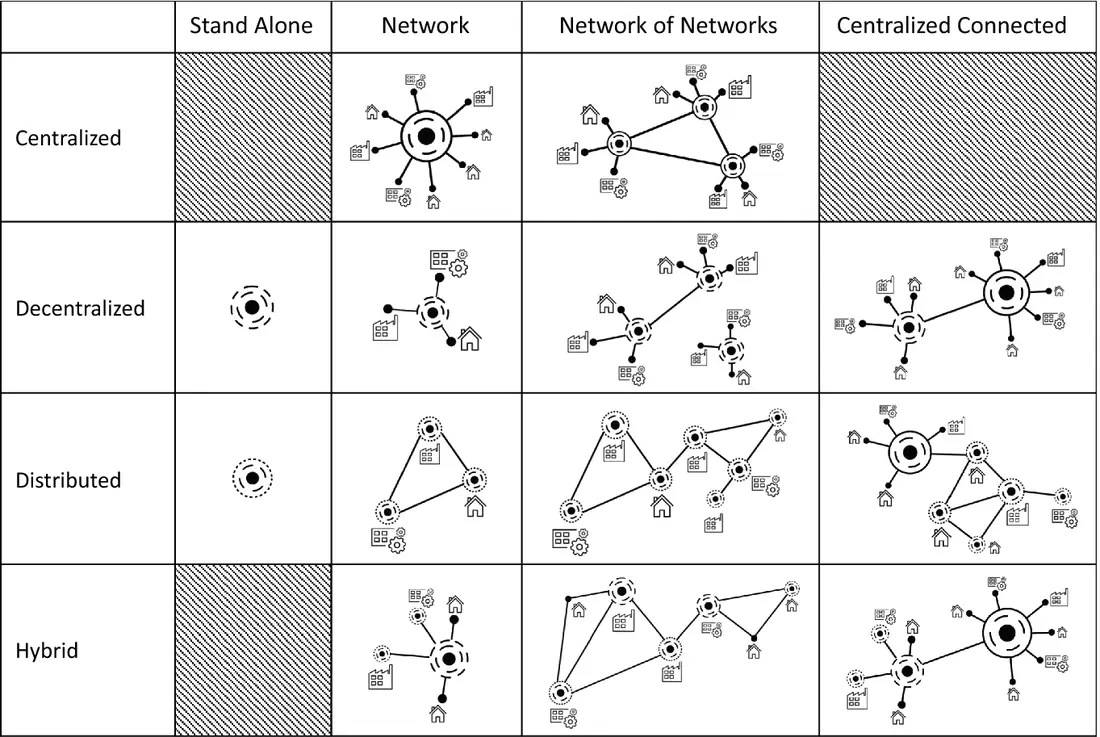|
The current economic paradigm, characterized by a continuous pursuit of economic efficiency in resource exploitation, is unsustainable and unfair. There is an urgent need to reframe the economy towards a new paradigm that promotes human well-being in harmony with nature. Distributed Economies (DE) is a promising model for locally-based sustainability. DE consists of small-scale value-adding units (e.g. manufacturing, energy generation, food production, water management, software development, knowledge generation) where the control of core activities is shifted towards the user/client.
Centralization is a key barrier to sustainability and resilience. The mass production of goods and services in centralized systems is based on ideals of efficiency and cost savings, but it rarely considers the social and environmental costs of manufacturing. Overcapacity is pushed onto consumers through aggressive marketing and planned obsolescence strategies, and nature is seen only as a provider of resources to be exploited. This centralization also creates barriers to repair and maintain products, affecting actors who contribute to a local economy and ensure circular material flows. DE addresses these issues by promoting cooperative work in the production of goods and services, solidarity finance, fair trade, and solidarity consumption. Participants share the economic, political, and cultural results obtained from value creation. The principle of Distributed Economies calls for an analysis of what products and services in a specific region deliver social and environmental harms by virtue of being produced in large-scale, centralized modes. The objective is to become sensitive to and work to change systems that have become an “ever-faster once-through flow of materials from depletion to pollution”. In conclusion, DE is a promising model for local sustainability. It promotes cooperative work and shared value creation while reducing environmental impact and resource depletion. DE can address the issues caused by centralization and promote a sustainable economic paradigm that values human well-being in harmony with nature. For more read - dos Santos, A., Vezzoli, C., Garcia Parra, B., Molina Mata, S., Banerjee, S., Kohtala, C., . . . Xia, N. (2021). Distributed Economies. In C. Vezzoli, B. Garcia Parra, & C. Kohtala (Eds.), Designing Sustainability for All: The Design of Sustainable Product-Service Systems Applied to Distributed Economies (pp. 23-50). Cham: Springer International Publishing.
0 Comments
Your comment will be posted after it is approved.
Leave a Reply. |
Archives
March 2023
Categories
All
Archives
March 2023
|


 RSS Feed
RSS Feed
